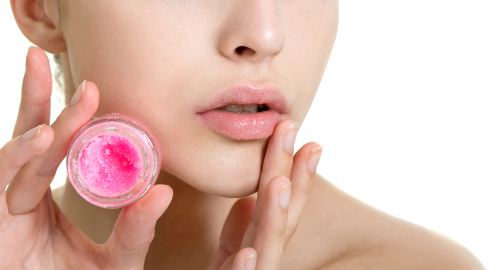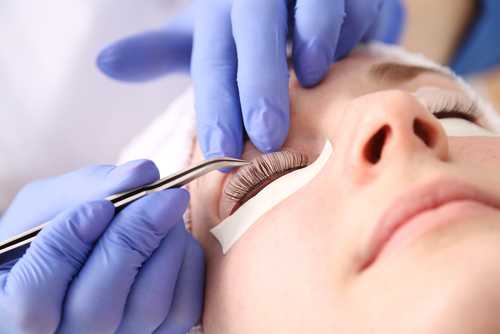Despite cold weather bringing in cosy winter nights, mugs of cocoa, and a brand new year, one thing it also brings is dry skin.
People with sensitive skin can find themselves suffering from redness, inflammation, chapped lips and even eye irritation.
With this in mind, the beauty experts at K.B Pro have compiled a list of tips and tricks to keep your skin glowy and dewy, as well as alternatives to a potentially drying makeup routine.
- Regularly scrub your lips

Karen Betts, Permanent Makeup Artist at K.B Pro advises: “If your lips become continuously dry, a layer of dead skin and debris will build up on them. Not only will this make it harder to hydrate them, but will also cause lipstick to appear dry and clumpy.
“Using a gentle lip scrub will allow you to remove the layer of dry skin that has built up, meaning you can effortlessly apply lip balm and hydrating masks.
“As well as this, scrubbing will mean your lipstick will glide on smoothly. If you are looking for a more permanent solution that won’t dry or irritate your lips at all, you could consider lip blush treatment. This means you’ll be able to keep your lips hydrated whilst still having that lipstick effect.”
- Invest in a humidifier
The cost of living crisis means that most people will be experiencing colder air than usual inside their homes. Cold air can be extremely irritating and drying, so buying a humidifier could be a great solution.
Humidifiers add moisture to the air, and will not break the bank if you are trying to save money. A portable humidifier would be even more helpful, as it would mean you could take it from room to room, even using it while you are asleep.
- Consider a lash lift or permanent eyeliner

Anybody who has experienced harsh winds while wearing mascara will know it is not for the faint of heart – and usually results in a smudged, panda-like finished appearance. This would increase the risk of the mascara formula actually getting into your eyes, which could potentially inflame your skin.
As well as this, wearing mascara and eyeliner would mean having to remove the product at the end of the day with cotton pads or makeup wipes, which can be drying to your skin if not used correctly. This, once again, would not be conducive to calming your skin and could encourage more redness throughout the cold months. Opting for treatments such as permanent eyeliner or lash lifts can be key when you want to keep your skin healthy in the cold.
- Limit bath and shower time

While it may sound suspicious, trust us on this one. Long baths and showers can strip naturally hydrating oils from your skin, causing it to become dry and coarse.
It may be tempting to languish in a hot bath for as long as possible in the winter, but when it comes to maintaining moisture, the shorter the bath, the better.
Contrary to popular belief, you do not actually need to shower every day! While it usually comes down to personal preference, and if you feel a daily shower is non-negotiable, ensure you are using a deeply-hydrating shower milk.
Once you have gotten out, drench your skin in a heavy-duty moisturiser or body butter.
- Apply unscented moisturiser – and don’t forget your nipples!

If your skin is already inflamed, adding something with a fragrance to it is asking for more redness and irritation. Many brands only utilise natural, unscented ingredients that help to nourish the skin, encouraging a glowy finish.
More tender areas of your body tend to suffer more in colder weather, including your nipples, which could become cracked and flaky.
This can become especially apparent for people who are breastfeeding, particularly having to expose the skin in colder weather.
In some cases, the nipple can actually change colour, becoming extremely pale. In this instance, in order to boost your confidence and minimise the look of dryness, you could consider an areola-enhancing tattoo.
Peaceful destinations in the UK





